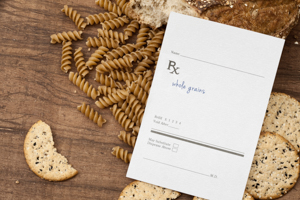High Cholesterol: Effect of Food on Cholesterol
Topic Overview

Food can affect the amounts of cholesterol in your blood. Some foods raise cholesterol. Other foods help lower cholesterol.
The table below lists different foods and drinks and how they affect your total cholesterol level, your HDL("good") cholesterol, and your LDL("bad") cholesterol.
|
Dietary element |
Examples |
Effect on your cholesterol level |
|---|---|---|
|
Alcohol |
|
|
|
Dietary fiber (soluble) |
|
|
|
Dietary fiber (insoluble) |
|
|
|
Saturated fat |
|
|
|
Monounsaturated fat |
|
|
|
Polyunsaturated fat |
|
|
|
Omega-3 fats |
|
|
|
Trans fats |
|
|
|
Soy protein |
|
|
|
Plant stanols and sterols |
|
|
Related Information
References
Other Works Consulted
- National Heart, Lung, and Blood Institute (2005). Your Guide to Lowering Your Cholesterol With TLC (NIH Publication No. 06-5235). Available online: http://www.nhlbi.nih.gov/health/public/heart/chol/chol_tlc.pdf.
- Raymond JL, Couch SC (2012). Medical nutrition and therapy for cardiovascular disease. In LK Mahan et al., eds., Krause's Food and the Nutrition Care Process, 13th ed., pp. 742-781. St Louis: Saunders.
- Sacks FM, et al. (2006). Soy protein, isoflavones, and cardiovascular health: An American Heart Association science advisory for professionals from the Nutrition Committee. Circulation, 113(7): 1034-1044. Also available online: http://circ.ahajournals.org/cgi/content/full/113/7/1034.
Credits
ByHealthwise Staff
Primary Medical Reviewer E. Gregory Thompson, MD - Internal Medicine
Martin J. Gabica, MD - Family Medicine
Kathleen Romito, MD - Family Medicine
Adam Husney, MD - Family Medicine
Specialist Medical Reviewer Rhonda O'Brien, MS, RD, CDE - Certified Diabetes Educator
Kathleen M. Fairfield, MD, MPH, DrPH - Internal Medicine
Current as ofDecember 6, 2017
- Top of Page
Next Section:
Related Information
Previous Section:
Topic Overview- Top of Page
Next Section:
References
Previous Section:
Related Information- Top of Page
Next Section:
Credits
Previous Section:
References- Top of Page
Current as of: December 6, 2017
Author: Healthwise Staff
Medical Review: E. Gregory Thompson, MD - Internal Medicine & Martin J. Gabica, MD - Family Medicine & Kathleen Romito, MD - Family Medicine & Adam Husney, MD - Family Medicine & Rhonda O'Brien, MS, RD, CDE - Certified Diabetes Educator & Kathleen M. Fairfield, MD, MPH, DrPH - Internal Medicine